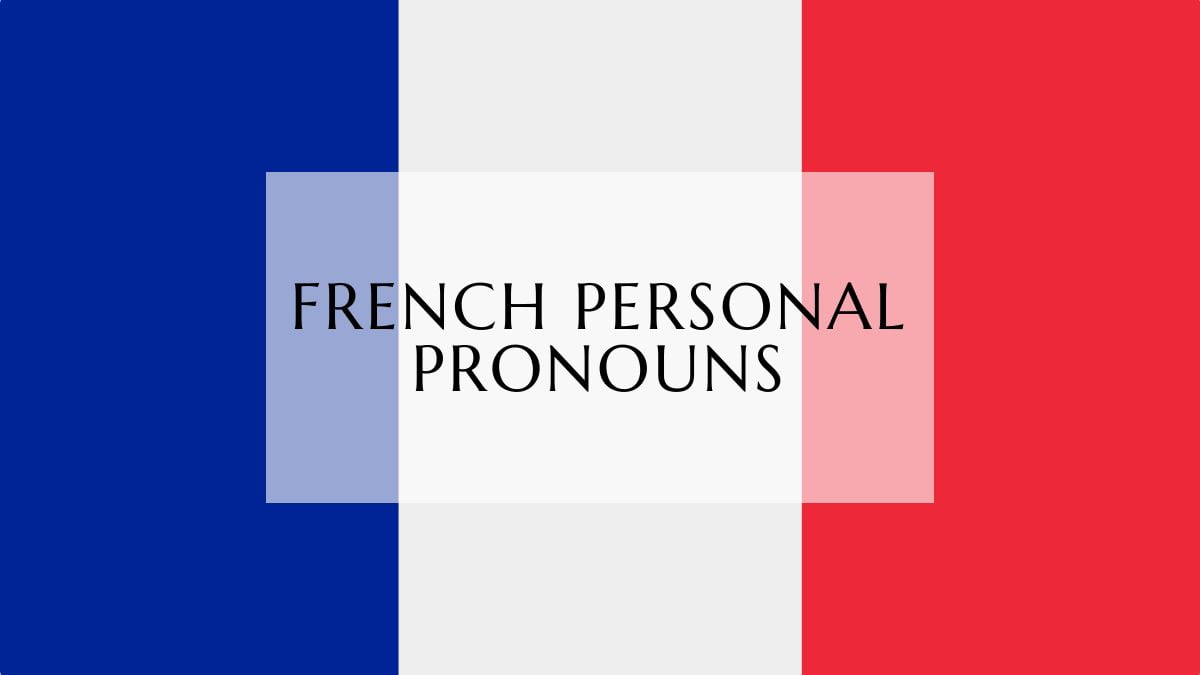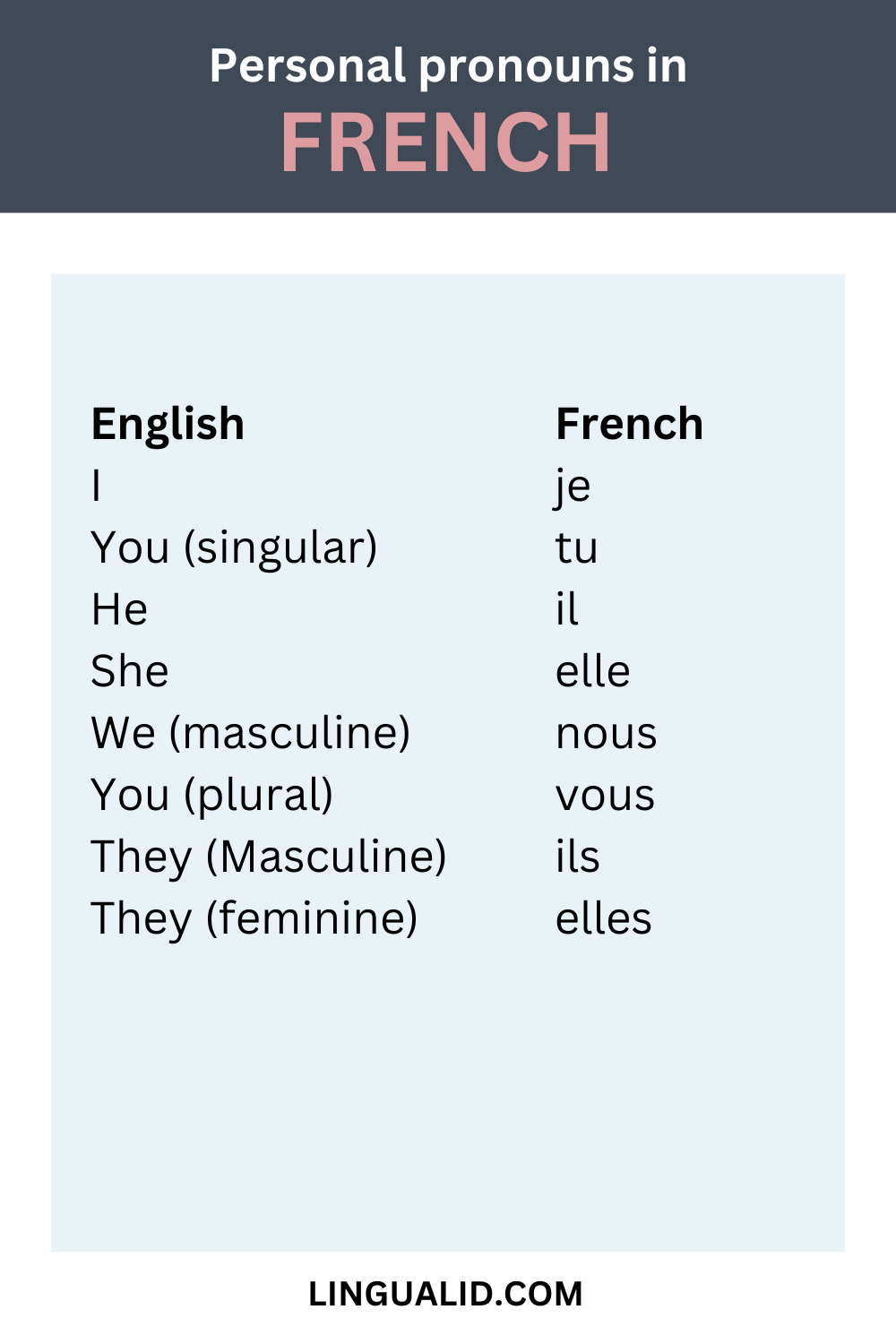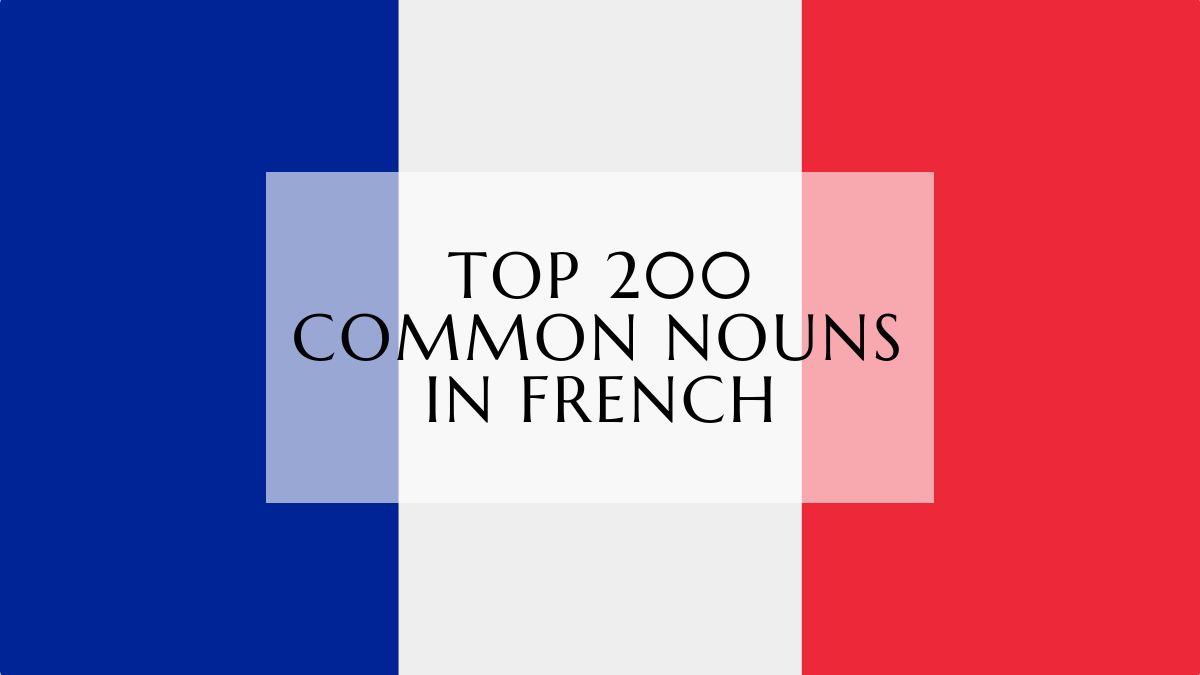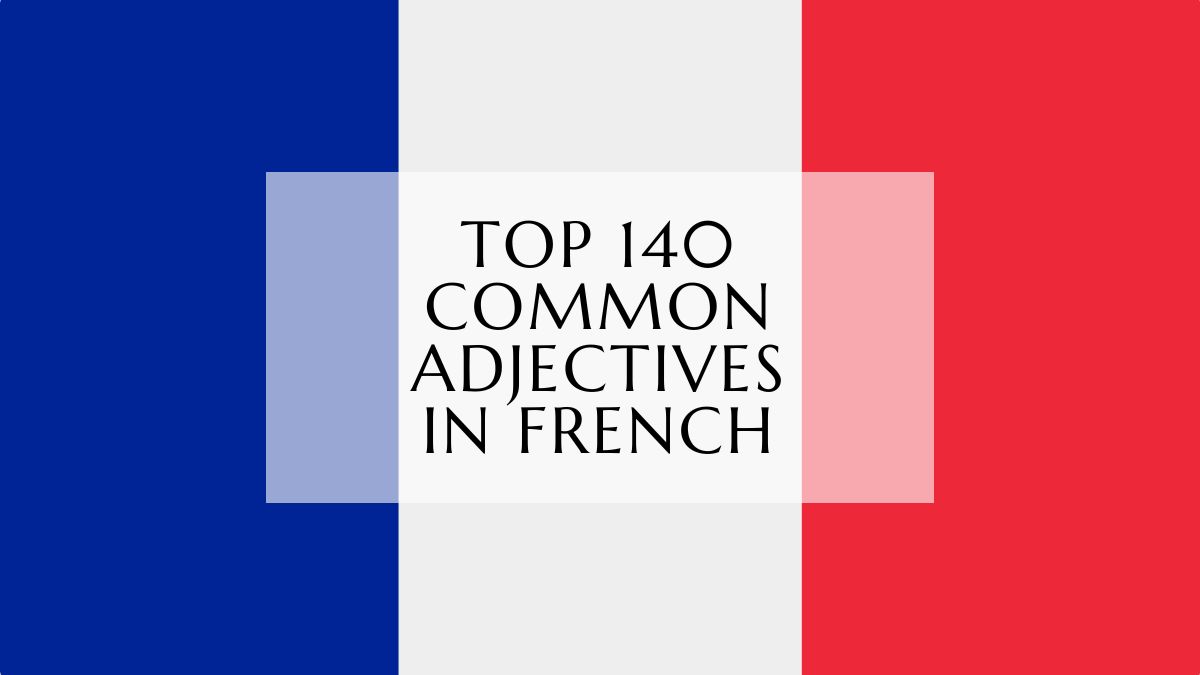French Personal Pronouns is one of the first basic lessons every French learner must learn to talk about or describe anything, of course adding to that verbs, nouns, and adjectives to give complete sentences.
So in this post, we will talk about personal pronouns in French and provide some brief explanations.

French Personal Pronouns
| English | French |
| I | je |
| You (singular) | tu |
| He | il |
| She | elle |
| We (masculine) | nous |
| You (plural) | vous |
| They (Masculine) | ils |
| They (feminine) | elles |
Note: you can practice what you’ve learned here, and learn how to pronounce each of the words in our Memrise course here, don’t know how to use the platform or sign up? we’ve got you covered in this easy-to-follow tutorial here.
Tips:
- There is no “it“, every French word has a gender, so it is either “il” or “elle“.
- They: If we’re talking about a group of males we use “ils“, for females we say “elles“, and for a group of a mix of genders, we use also “ils“

French Personal Pronoun Review
Short Answer Questions
- What is the French word for “I” and how is it used in a sentence?
- How do you address someone informally as “you” in French, and what is the formal equivalent?
- What are the French equivalents of “he,” “she,” and “it”? Explain the reason behind this difference.
- How does the French language differentiate between masculine and feminine forms of “they”?
- Provide the French equivalent of “we” and use it in a simple sentence.
- What is the French word for “you” when addressing a group of people?
- Translate the following sentence into French: “They are learning French.” (Assume a group of females).
- Why is it important to learn French personal pronouns early on in your language learning journey?
- Explain the key difference in pronoun usage between English and French when referring to inanimate objects.
- Provide an example of how a French personal pronoun changes depending on the gender of the noun it replaces.
Answer Key
- Je is the French word for “I”. Example: Je parle français (I speak French).
- Informally, “you” is tu. The formal equivalent is vous.
- “He” is il, “she” is elle, and “it” is also either il or elle. This is because French nouns have genders, so inanimate objects are assigned either masculine or feminine articles.
- “They” for a group of males is ils, while for a group of females it’s elles.
- “We” in French is nous. Example: Nous allons au cinéma (We are going to the cinema).
- When addressing a group of people, “you” is vous.
- Elles apprennent le français.
- Learning French personal pronouns is crucial as they are fundamental building blocks for constructing sentences and understanding grammatical structures.
- Unlike English, where “it” is used for inanimate objects, French uses either il or elle depending on the grammatical gender of the noun.
- Example: “The book is interesting” would be “Il est intéressant” if the book (le livre) is masculine, but “Elle est intéressante” if the book (la grammaire) is feminine.
Get a pdf file of this lesson and other 1000 essential French words now, write your email so we can send it to you:
Happy learning!
Oualid Cheddadi is the founder of Lingualid, a platform that inspires independent language learners worldwide, regardless of the language they are learning. The name “Lingualid” is derived from the Portuguese word for “language,” “língua,” and the last three letters of Oualid’s name, “Lid.”



